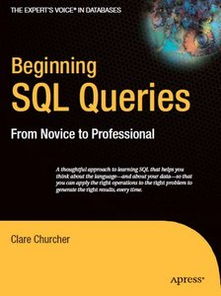Content:
In the vast digital ocean of social interactions, being accused of "fishing" — a term often used to describe someone who is perceived as manipulative or overly insincere in their online communications — can be a frustrating experience. Whether it's a casual chat, a professional setting, or a social media platform, such an accusation can cast a shadow on one's reputation. This article delves into the art of retaliating when accused of fishing, offering a variety of techniques to effectively respond and clear the air.
Understanding the Accusation
Before we dive into the counter-attack strategies, it's important to understand the nature of the accusation. Being called a "fisher" implies that you are not being genuine in your interactions, possibly using people for your own gain or engaging in superficial conversations without any real intent. It's crucial to remain calm and composed when faced with such an accusation, as an emotional response can escalate the situation.
Acknowledge and Reflect
The first step in responding to an accusation of fishing is to acknowledge the concern. This doesn't mean you have to accept the label, but showing that you respect the other person's perspective can go a long way in diffusing tension.
Example Response: "I appreciate your concern. I understand that my actions might have been perceived as fishing, and I want to assure you that was not my intention."
Provide Context
Once you've acknowledged the concern, it's time to provide context. Explain the situation or the conversation that led to the accusation, focusing on the sincerity of your intentions.
Example Response: "In our last conversation, I was genuinely interested in your perspective on [topic]. I believe that understanding different viewpoints is important, and I wasn't trying to manipulate the conversation for my own benefit."
Use Empathy
Empathy can be a powerful tool in responding to an accusation. Show that you understand why the other person might have felt that way and express regret if your actions were indeed misinterpreted.
Example Response: "I see now that my approach might have come across as insincere. I apologize if I gave that impression and assure you that my interest in the conversation was genuine."
Be Concise and Focused
When responding, keep your message concise and focused on the issue at hand. Avoid getting sidetracked or delving into unrelated topics, as this can confuse the matter further.
Example Response: "Regarding the fishing accusation, I want to clarify that my intention was never to manipulate or deceive. I value our interaction and hope we can move past this misunderstanding."
Offer Proof
If possible, provide evidence of your genuine interest or past interactions. This could be through past conversations, shared interests, or common goals.
Example Response: "As evidence of my sincerity, I'd like to remind you of our previous discussions where we [shared an experience, discussed a common interest, etc.]. I hope this helps to illustrate my genuine interest in our relationship."
Ask for Clarification
If the accusation is unclear or seems unfounded, don't hesitate to ask for clarification. This can help to ensure that both parties are on the same page and can address the issue more effectively.
Example Response: "I'm not quite sure what specific actions led to the fishing accusation. Could you please provide more details so I can understand the situation better?"
Commit to Change
If you realize that your actions did indeed contribute to the misunderstanding, commit to making changes. This shows that you are willing to learn and grow from the experience.
Example Response: "Upon reflection, I realize that I might have come across as insincere in the past. I'm committed to being more mindful of my interactions moving forward and ensuring that my intentions are always clear."
Maintain Professionalism
No matter how personal the accusation may feel, it's important to maintain a professional demeanor. Avoid attacking the accuser or engaging in a heated debate, as this can damage your reputation and the relationship.
Example Response: "I understand that this might be a sensitive topic for you, and I respect your feelings. I would appreciate it if we could keep our discussion professional and focused on finding a resolution."

Seek Mediation
If the situation is escalating or if the conversation is becoming unproductive, consider seeking a neutral third party to mediate. This can help ensure that both parties have a fair opportunity to express their concerns and work towards a resolution.
Example Response: "I believe that this conversation might benefit from a neutral third party. Would you be open to having someone mediate our discussion to ensure that both our perspectives are heard?"
Acceptance and Moving On
Finally, if the accusation persists despite your efforts to clarify and address the issue, it may be time to accept that not everyone will understand your intentions. In such cases, it's important to focus on your own actions and move on.
Example Response: "I've done my best to address your concerns, but it seems that we have different perspectives. I hope we can respect each other's viewpoints and move forward."
In conclusion, being accused of fishing can be a challenging experience, but by employing these counter-attack techniques, you can effectively respond and protect your reputation. Remember to remain calm, provide context, use empathy, and maintain professionalism throughout the process. With the right approach, you can turn a negative situation into an opportunity for growth and understanding.












